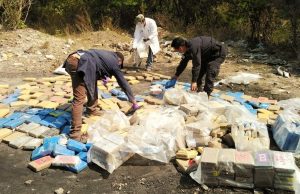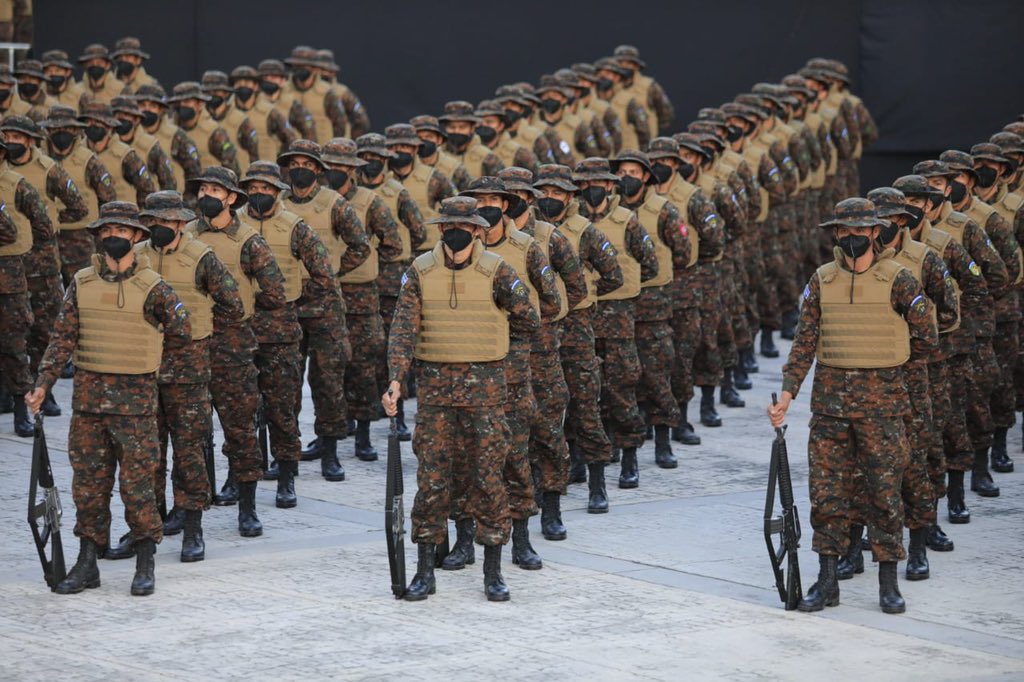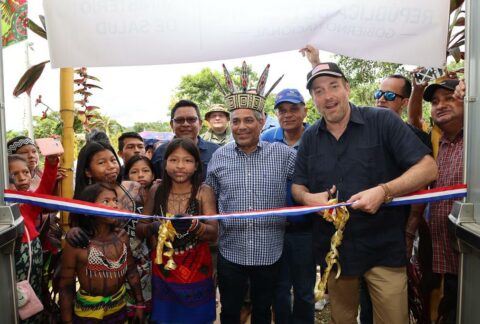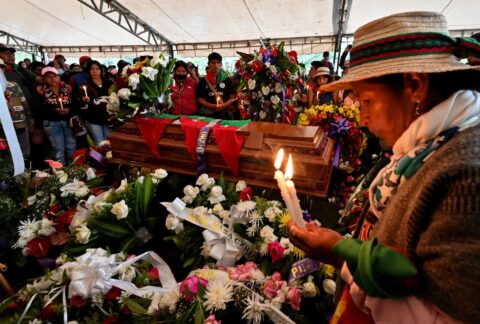The Salvadoran government announced on February 16, 2021, the integration of 1,042 soldiers from its Armed Force, including 51 women, into security operations with National Civil Police officers to strengthen the defense strategy against gangs.
With this addition, 9,000 officers are taking part in the Territorial Control Plan, the Ministry of Defense said on Twitter. This strategic plan began in July 2019, with the aim of recovering gang-controlled territories and reducing murders and other high-impact crimes.
The new contingent will join patrol efforts in areas with the highest crime rates, the Presidency said.

It is estimated that about 60,000 active gang members operate on Salvadoran soil; three of the main gangs are Mara Salvatrucha (MS-13), Barrio 18-Sureños, and Barrio 18-Revolucionarios, the BBC reported. These gangs are responsible for carrying out most of the murders in the country, the news agency EFE said.
On February 15, the newspaper El Salvador reported that the Central American country continues to be a transit point for narcotraffickers to move their shipments to the United States and other countries, where gangs play an increasingly active role, since they control the territories of many communities. The gangs went from collecting extortion fees from drug sellers operating in their territories to marketing the product themselves, in addition to consumming, and also trafficking methamphetamine now, El Salvador said.
October 2020 marked the first time authorities dismantled a methamphetamine lab owned by MS-13 in San Salvador. To mislead the authorities, the facility put on a false front as a religious center, the Salvadoran daily La Prensa Gráfica reported.
The amphetamine consumption rate in Central America is higher than the global tally, representing a potential market that gangs can control in the future with their retail trafficking networks, the Mexican magazine Forbes Centroamérica reported on July 23, 2020.
“Gangs have been operating with some international drug trafficking organizations in different capacities, providing security, even moving the product. They have come into contact with significant amounts of drugs; they have definitely taken a leap in this illicit business,” security expert Carlos Ponce, a professor at the University of the Fraser Valley in Canada, told the El Salvador newspaper on February 14.
Gangs have been operating with some international drug trafficking organizations in different capacities, providing security, even moving the product. They have come into contact with significant amounts of drugs; they have definitely taken a leap in this illicit business,” security expert Carlos Ponce, professor at the University of the Fraser Valley in Canada.
Nonetheless, Salvadoran security forces remain vigilant. On February 11, they seized 500 kilograms of cocaine on a vessel sailing in territorial waters, the police reported on Twitter. “During the operation, a chase ensued of a narco-speedboat from the Fonseca Gulf to Jiquilisco Bay; the [Guatemalan] traffickers attacked with firearms. One of them died, and the other one is in custody,” Salvadoran Minister of Justice and Public Security Rogelio Rivas said on Twitter.









